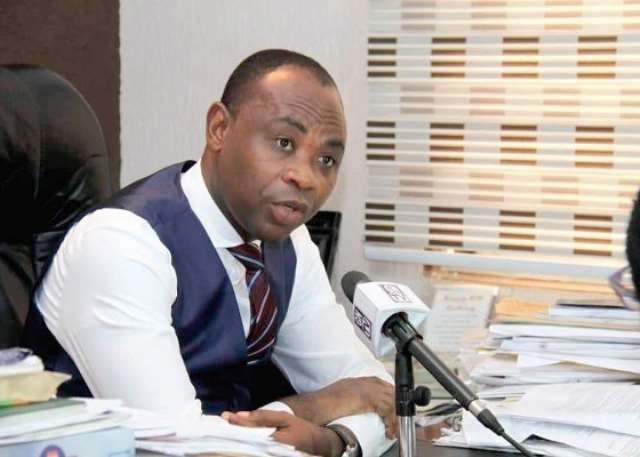News
Indebtedness and gratitude

Often times in the face of some eventuality that has overtaken us, we find ourselves saying regretfully. “If I had only known, I would have done differently.” Sometimes this is true, but more often it isn’t the fact that we don’t know what gets us into difficulties, but rather we choose to ignore what we do know.
We mix so little wisdom with our knowledge. We know the facts of history. We know what causes have produced what results in the past but time has a way of making the past seem different from the present. We may believe that Babylon and Rome fell because of their moral and spiritual dissolution. It seems so easy to believe this because it is all far in the past. But it doesn’t seem so easy to believe such probabilities of our own time and our own generation, however true they may be.
From history and from scripture it seems quite easy to believe that the breaking of a law has always exacted its penalty. It seems easy to believe of the past that the terrible luxury of over indebtedness has always brought a day of disastrous reckoning; that those who would rather mortgage the future than curtail their appetites have always been brought low in remorse. It seems easy to believe of the past that the Lord God has often permitted evil men to pursue their purposes for a short season before overruling their evil works. But what is not so easy to believe, but is also solemnly true is that, these same causes will still lead to these same results in our day.
We have not charmed immunity from the consequences of our own doing. On this point the Father of all men has said: “I, the Lord, am bound when ye do what I say; but when ye do not what I say, ye have no promise.” Knowledge of the past we have both of scripture and of history. It would seem now that we might well transmit that knowledge into wisdom, by believing of our own generation what we so readily believe of the past and then order our lives accordingly. No, it isn’t so much what we don’t know that causes our troubles but rather what we choose to ignore.
Not long ago, a University Researcher decided to conduct an experiment on gratitude. But her motives weren’t purely academic. This researcher is a mother of four teenagers. She explained, “I wanted to learn more about how I can raise my kids to be more grateful in an era of entitlement.”
What she learned might be a bit surprising: gratitude is tied to feelings of indebtedness. We often think of debt as a burden, an obligation that must be paid. But the research study found that feeling indebted to God, acknowledging what He has done for us, “leads to increased overall happiness and well-being.” The debt we owe to Him is one we can never pay, yet those who recognise that debt actually feel closer to Him, not intimidated by Him. What’s more, they are also more likely to reach out to others in acts of service and kindness. Rather than feeling burdened, they seem to be uplifted and inspired by their debt to the Giver of all good gifts.
The study was published in a major academic journal, but it had a major influence in the researcher’s family. “In our house,” she said, “we don’t just practise the feeling of gratitude; we practise acknowledging our indebtedness and expressing our gratitude through service.”
We all owe much to the kindness and goodness of others. While we’re certainly responsible for our own choices in life, we are indebted also to those who have taught us, nurtured us, and helped us along the way. And, above all, we are indebted to our Maker for life and everything in it. Indeed, every good thing comes from Him.
The more deeply we feel that, the more inclined we are to see that goodness all around us. We start to see God’s hand not just in our lives but in others’ as well. In this way, we draw closer both to God and to His other children, our brothers and sisters in God’s wonderful world.
By Samuel Enos Eghan
News
‘Stop shielding perpetratorsof Gender-Based Violence’By Spectator Reporter

THE Minister of Gender, Children and Social Protection (MOGCSP), Dr Agnes Naa Momo Lartey, has called on traditional authorities, religious leaders and community influencers to stop shielding perpetrators of gender-based violence and allow the law to work.
She said too many cases were being buried at the community level, with abusers protected while victims were pressured into silence. This, she stressed, must end.
Dr Lartey made the call on Tuesday at the national launch of the 2025, 16 Days of Activism Against Gender-Based Violence campaign, held at the Kaneshie Main Station in Accra.
This year’s campaign, observed globally from November 25 to December 10, is on the theme: ‘Unite! End Digital Violence Against Women and Girls.’
It highlights rising incidents of cyberbullying, online stalking, image-based exploitation and other forms of technology-facilitated abuse that disproportionately affect women and girls.
The minister urged the media to use their platforms to condemn abuse and intensify education, noting that no person should “die in silence’’ in a society that values dignity, equality and the principles of Sustainable Development Goal 5.
She also encouraged women, girls, men and boys to report any form of abuse, assuring the public that support services were available to all, regardless of age or social status.
Dr Lartey described gender-based violence as one of the most pervasive human rights violations in Ghana. She referenced a 2016 Domestic Violence Survey showing that 27.7 per cent of Ghanaian women have experienced domestic violence, as well as a 2014 Demographic and Health Survey which revealed that 32 per cent of girls aged 15–24 believe wife beating was justified—an indication of harmful societal norms.
Calling the situation “unfortunate and sad,” she stressed that the nation must dismantle cultural beliefs that excuse or normalise violence.
Outlining government actions, Dr Lartey announced that Cabinet has approved the revised National Domestic Violence Policy, while the updated Domestic Abuse Bill and its Legislative Instrument were being finalised by the Attorney-General’s Department.
She also disclosed plans to operationalise a national shelter in Accra and begin constructing the 16 regional shelters promised to strengthen protection systems for survivors.
Additionally, the ministry has trained 200 market leaders as paralegals and 100 professionals, including psychologists, medical workers and legal experts, to support victims with referrals and counselling.
UNFPA Country Representative, Dr David Wilfred Ochan, reaffirmed the agency’s support for Ghana’s efforts. He unveiled a nationwide initiative titled “16 Stations, 16 Routes, 16 Destinations,” which will use the country’s public transport system to raise awareness on gender-based violence.
In partnership with the Ghana Private Road Transport Union (GPRTU), the initiative will promote stickers, public announcements, training and codes of conduct to ensure that transport stations become safe spaces where commuters, traders, porters and young people can access information and hotline services to report or prevent abuse.
Join our WhatsApp Channel now!
https://whatsapp.com/channel/0029VbBElzjInlqHhl1aTU27
News
Safeguard religious rights ofstudents – CRI urges studentsBy Spectator Reporter

CHILD Rights International (CRI) is urging the government to adopt a firm and comprehensive national policy to safeguard the religious rights of students in secondary schools, insisting that no child should be denied education or the freedom to express their faith.
In a statement issued on Thursday in Accra, the organisation said the recent controversy involving Wesley Girls’ Senior High School highlights deep-seated gaps in how children’s rights were upheld within the country’s long-standing educational structures.
According to CRI, the incident underscores the need for Ghana to reassess the relationship between school traditions and the constitutional rights of students.
The group emphasised that the right to education and the right to religious expression were fundamental, and must be reflected consistently in rules and practices across all schools.
Additionally, CRI noted that many well-known mission institutions such as Holy Child School and St. Louis Senior High School operate on religious foundations that have shaped their administrative cultures for decades.
These differ significantly from state-established schools like Ghana Senior High School in Koforidua, Tamale Senior High School and Achimota Senior High School.
This contrast, CRI argued, raises an important national question and what policy framework has guided these mission schools since their incorporation into the public system?
Although the government has declared all such schools secular, they continue to function as government-assisted institutions, maintaining a hybrid structure that leaves them neither fully autonomous nor entirely under the Ghana Education Service (GES).
This unclear arrangement has led to inconsistent rules on discipline, conduct and religious expression from one school to another.
CRI warned that the absence of a unified and enforceable national policy leaves significant gaps in the protection of children’s rights.
While rights may be universal, the group emphasised that their protection depends on strong and clearly defined state regulations.
The organisation further stated that the State has yet to assume full regulatory authority over the schools it supports financially. As a result, key administrative and disciplinary decisions often remain at the discretion of individual school authorities, creating uneven standards nationwide.
For the rights of children, particularly their right to practise their religion to be fully realised, CRI believes the government must move toward full regulatory ownership of all schools it funds or classifies as public.
Without this, tensions between deeply rooted school traditions and constitutional freedoms are likely to persist.
The statement stressed that once a school admits a student, it takes responsibility not only for their academic development but also for respecting their identity, including their religious background. Therefore, no child, CRI insists, should be prevented from practicing their faith within the school environment.
Moreover, the organisation called for the establishment of clear national standards that guide schools on accommodating religious expression without compromising discipline or institutional order.
It also urged the government to strengthen safeguarding systems with firm oversight and routine monitoring to ensure that children’s rights are protected based on national law, not historical customs or administrative discretion.
CRI admonished the government to clarify the official status of government-assisted mission schools to ensure that the rights of all students are upheld consistently across the country.
By Spectator Reporter
Join our WhatsApp Channel now!
https://whatsapp.com/channel/0029VbBElzjInlqHhl1aTU27







